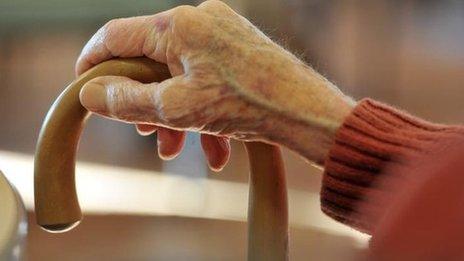Social care funding: MPs urge 'swift' cross-party review
- Published
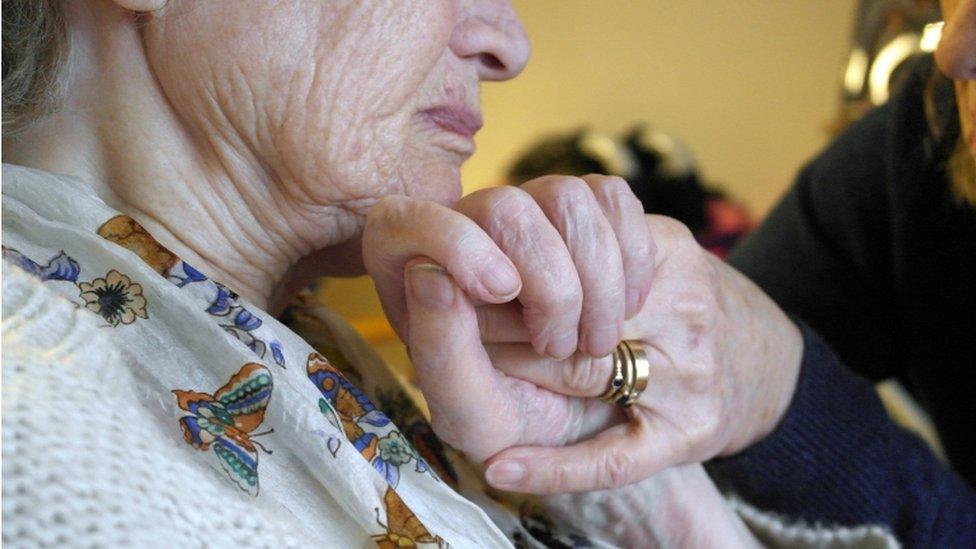
Social care includes care homes, nursing homes and home help with daily tasks
The heads of three Commons committees have urged the prime minister to find a "political consensus" on funding social care in England before 2020.
They say a cross-party review is the best method of finding a "sustainable way" to fund rising social care costs.
The MPs say agreement must be found quickly if it is to be reflected in the next spending round.
The government says adult social care will receive an extra £900m funding over the next two years.
The Local Government Association estimates there will be a £2.6bn funding gap in providing adult social care in England by 2020 - because of pressures from an ageing population, inflation and the cost of paying the National Living Wage.
The government announced in December it would allow councils to raise council tax further to pay for social care - by up to 6% over two years, rather than three.
But a letter signed by Clive Betts, chairman of the Communities and Local Government committee, Public Accounts Committee chairman Meg Hillier and her Health Committee counterpart Dr Sarah Wollaston says a long-term solution can only be found if there is cross-party consensus.
"Given the scale of rising demand, this immense challenge will face whichever party is in government over the coming decades," they wrote.
'Avoidable barriers'
They said a review should begin "as soon as possible" adding that the Commons Health Committee had already concluded that the social care system was at "breaking point".
The MPs said: "We also feel that the ongoing separation of health and social care is creating difficulties and avoidable barriers and inefficiencies. Any review should cover the two systems. We are calling for a new political consensus to take this forward."
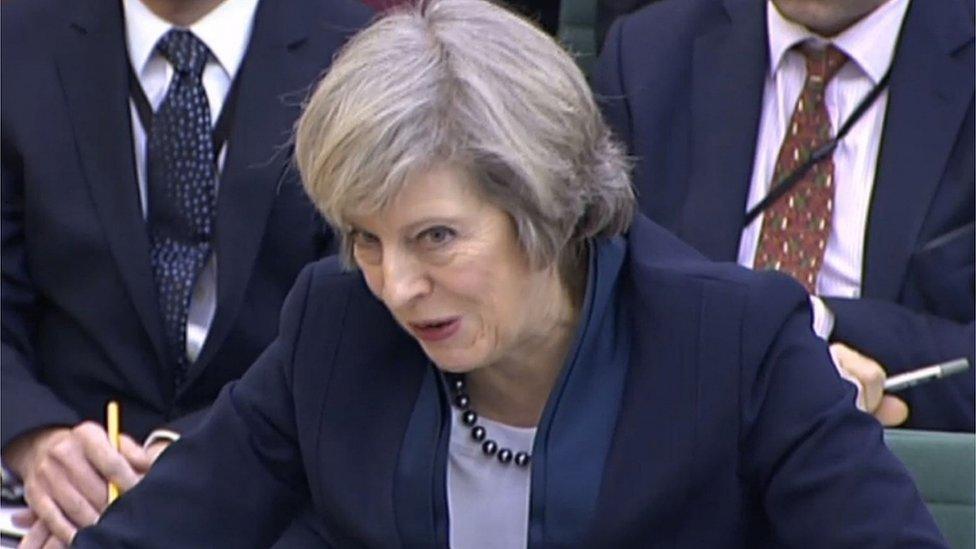
Mrs May was questioned about social care by the Liaison Committee
In 2014, the Barker Commission, set up by the King's Fund think tank, urged the government to merge the NHS and social care in England. The NHS is free at the point of need currently, while payment for care homes and home support is means-tested.
The MPs' letter was welcomed by the Local Government Association's Izzi Seccombe, who said local government leaders must be part of any review: "This is imperative to get a long-term, sustainable solution to the social care crisis that the most vulnerable people in our society deserve."
The Commons Liaison Committee heard in December that the number of people receiving social care fell from 1.7m to 1.1m in the past six years - something blamed by Labour MP Clive Betts on a 9% fall in real terms spending on social care.
'Drop in the ocean'
Growing numbers of elderly people have been going without help, or paying for their own care homes, nursing homes and home help as councils fund services only for the poorest. Those with assets of more than £23,250 are expected to pay the full cost themselves.
Councils have complained that the government has not given them extra money to pay for shortfalls in social care funding.
The government argues it has made "more funding available sooner" by bringing forward council tax rises and redistributing money cut from a housing scheme - which it says will bring in £900m extra for local authorities over two years for social care services.
But the cash was described as "a drop in the ocean" by the Care and Support Alliance of charities.
A spokeswoman for the government said it had "gone further to integrate health and social care than any [government] before it".
"We have brought budgets together for the first time through the Better Care Fund and given the NHS an extra £10bn per year by 2020/21 to fund its own plan to build a more responsive, modern health system."
But she added that the prime minister had made clear it was not just about money and local authorities needed to learn from each other to raise standards.
Theresa May told MPs in December, external that there were "different levels of delivery" across the country - with some areas showing better "integration... between social care and NHS trusts... where you see virtually no delayed discharges from hospital beds".
She acknowledged there was a longer term issue about social care funding, but added: "We want to make sure that we have a solution that will be sustainable, but this is not going to be an immediate 'Let's have a quick review over a matter of weeks' and that's it. We are going to have to look at this."
- Published15 December 2016
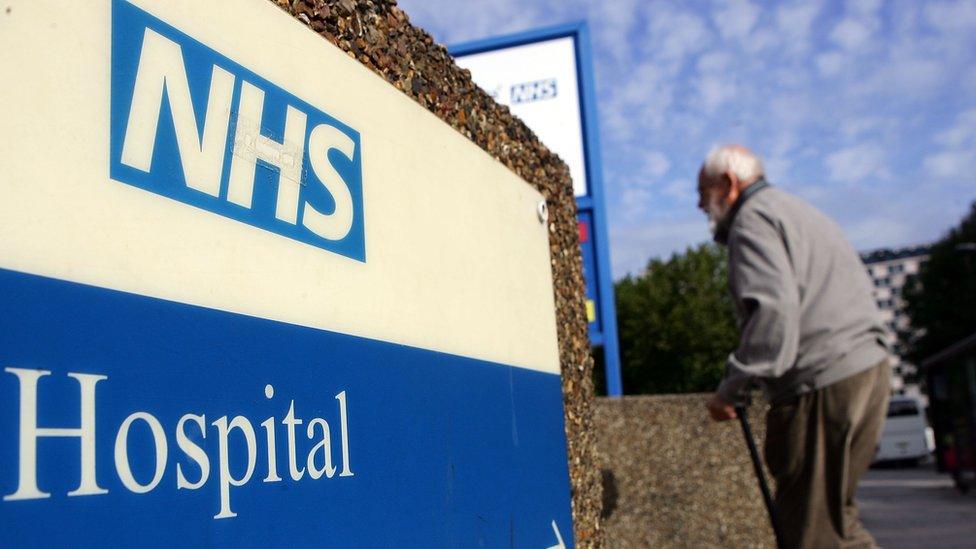
- Published12 December 2016
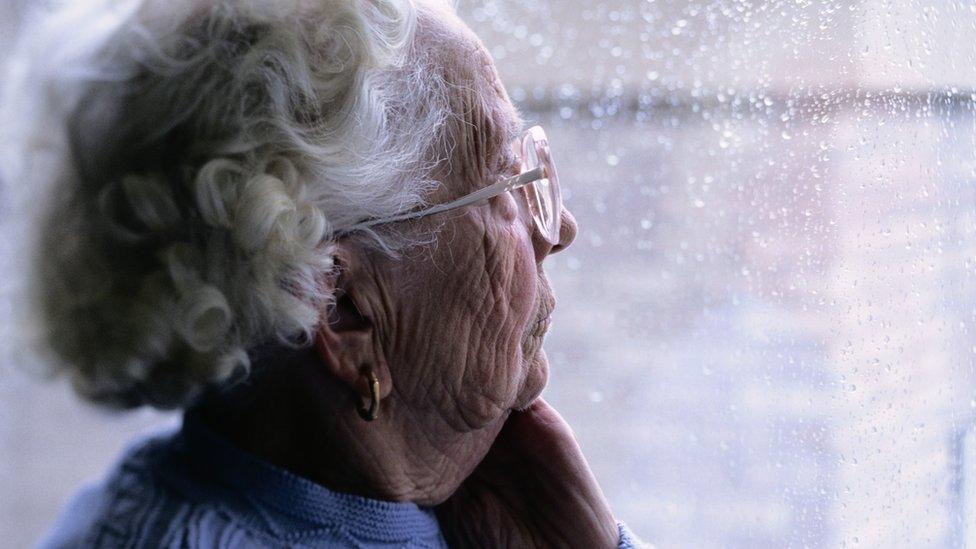
- Published14 December 2016
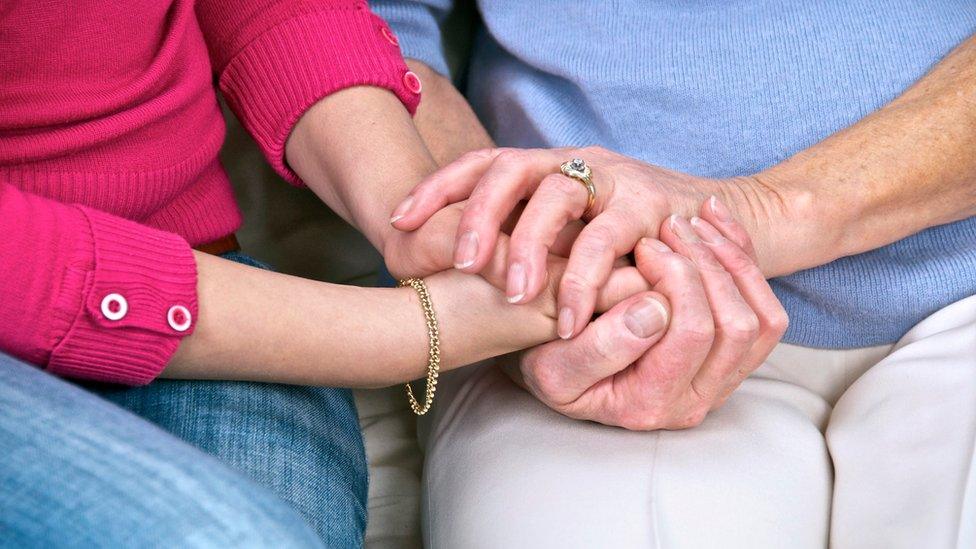
- Published23 February 2016
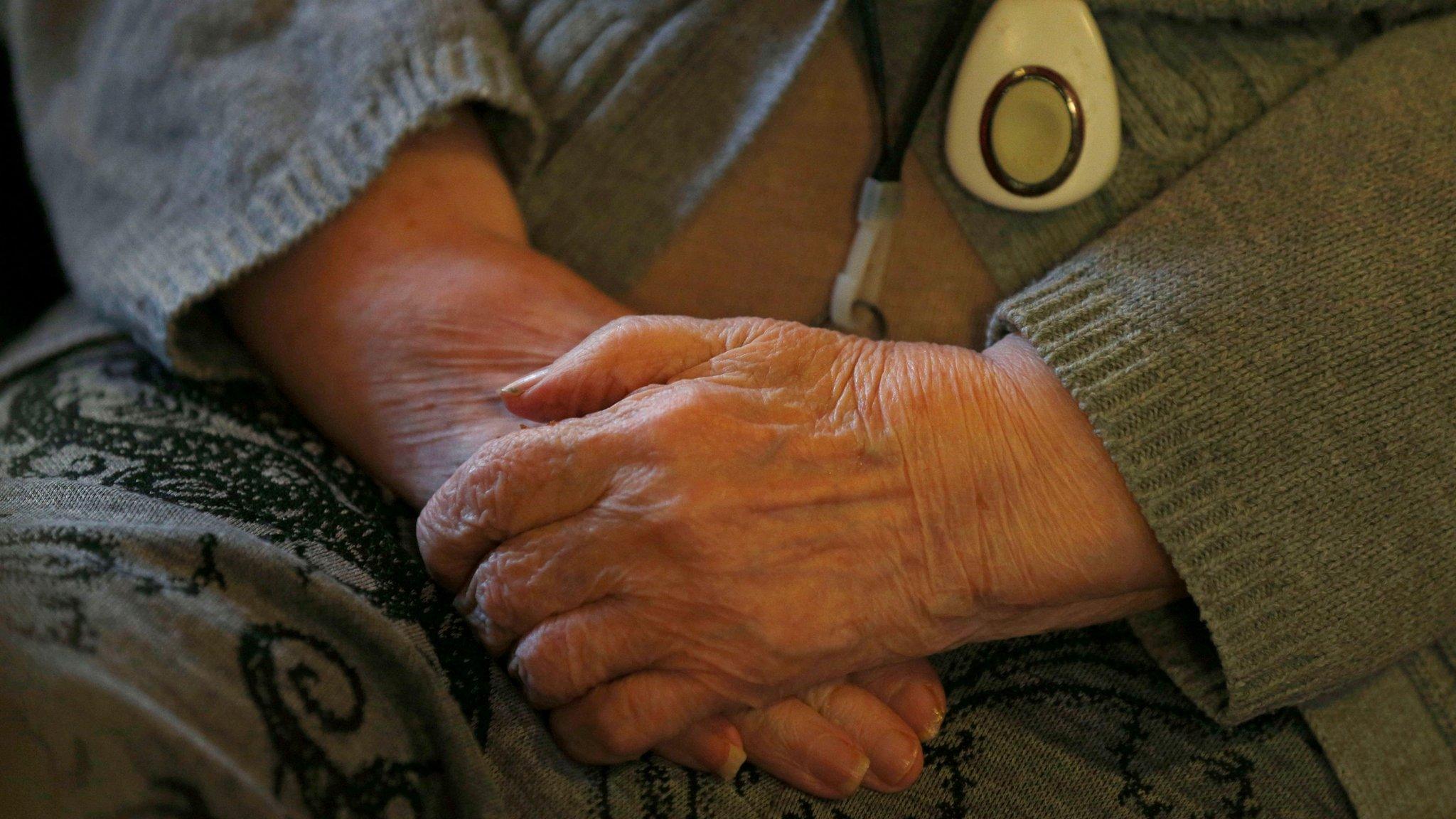
- Published4 September 2014
